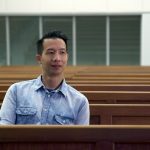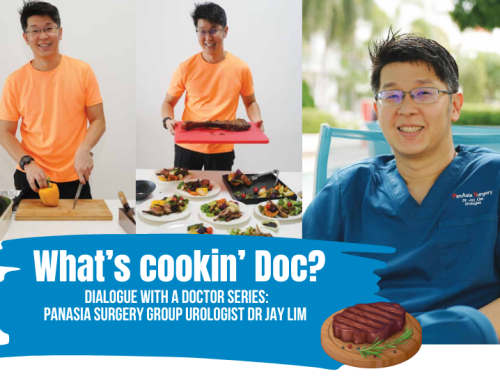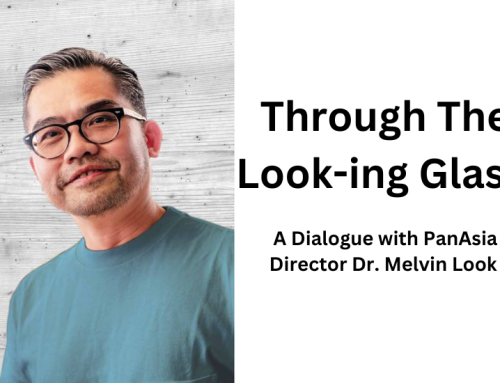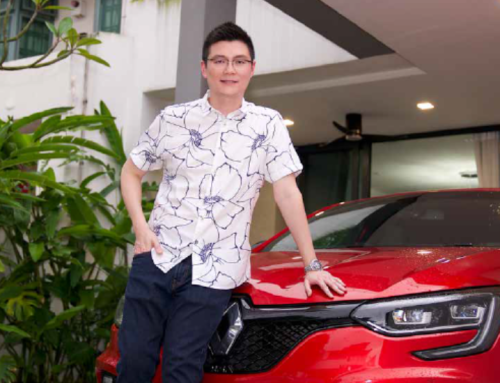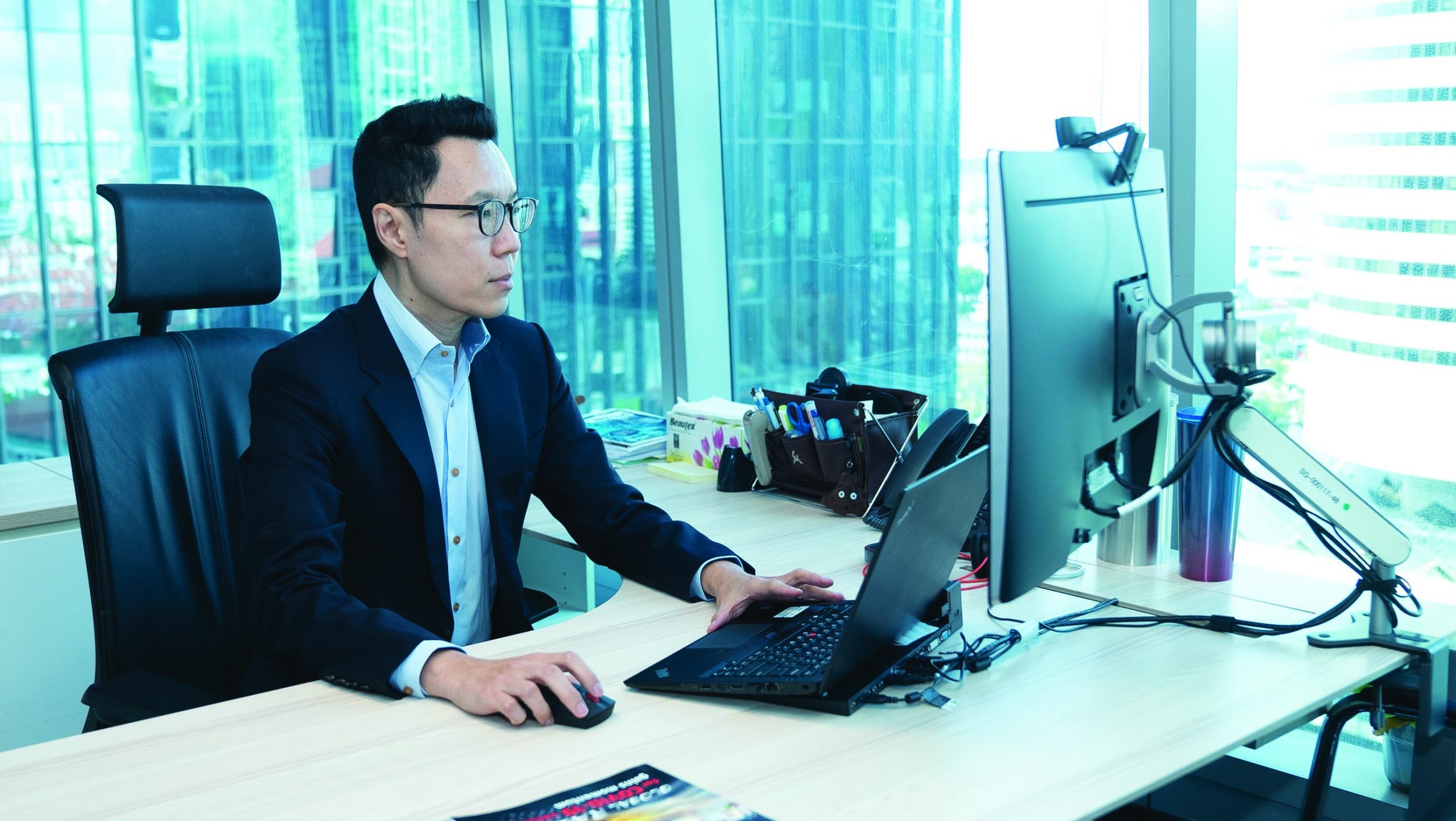
Ranked among the top 50 pharmaceutical companies in the world by sales (according to Pharmaceutical Executive), Ferring may not be a name that the average person is familiar with. However, patients suffering from inflammatory bowel disease will likely have heard of and used Ferring’s line of gastroenterological products. Likewise, Ferring’s other lines of products in the reproductive medicine/maternal health, urology and endocrinology arenas are also widely used by doctors and patients alike.
Within the industry, Ferring is a company that draws much respect. This is due to its unwavering commitment to the science behind their products, making sure that they are always doing the right thing for patients and customers, instead of being driven by sales figures and quarterly financial results.
In this issue’s Prime Interview Series, we have the opportunity to speak to Ferring’s Senior Medical Director for Asia-Pacific, Dr Nick Chia. With his background as a medical professional cross-fertilising with his many years of corporate experience, Dr Chia offers a refreshing perspective on health and well-being that is interesting, informative and beneficial to many of us.
Good morning, Dr Chia. Your experience as a trained doctor working in a corporate environment grants you a unique perspective that owes equal parts to your training and to your work experiences. How does this translate to your views on health and well-being?
DR NICK CHIA: This is how I see it. Health is something that leans towards objectivity, while well-being is more subjective. Let me crystallise the idea. Health is like a report card of your body functions at a particular point in time. It is measured in ways that we know and can understand. It is static and objective. While you may be able to get an idea of your health through your senses, such as when you are feeling nauseous or when your hand is feeling painful, you need to go to a doctor to have your temperature taken, your blood tested or your hand x-rayed, in order to find out the exact problem. These are not things that can be ascertained by senses alone.
On the other hand, wellness is based on subjective perspectives. For example, a doctor may ask you, “How are you feeling?” You may respond by saying, “I feel good because I eat well and rest well.” However, this relies on the individual’s interpretation of “well”, which may differ from person to person. It depends on the person’s own sense of physical and psychological well-being.
To put it another way, a wellness spa makes you feel “well” and relaxed by using soothing music, dim lighting, pleasant scents, comforting massages and other treatments. All of these elements make your senses feel “well”, but it does not mean that you have good health at that point in time. A medical check-up at a clinic or hospital will determine your health by the various objective measurements, such as blood tests, chest x-rays, ECG and ultrasound scans.
This is an interesting perspective. What informed your viewpoint and were you always health- and wellness-conscious since your younger days?
NC: Part of my view came from my medical training as an internal medicine specialist when I trained and worked at hospitals. But I am also informed by my experience working in a major pharmaceutical company which allows me to see health and wellness from both sides of the equation.
I will readily admit that I was not health-conscious during my younger days. I spent a number of years during my younger days in Singapore. I then spent about 20 years overseas studying and training in the UK as well as doing research in the US before coming back to Singapore. As a result, I spent a lot of time living in different places and cultures. My consciousness about these issues grew from these experiences living overseas.
During my time in the US when I was in my late 20s, I started becoming more health-conscious after I put on some weight. I started exercising more, going on runs and doing aerobic exercises. I also started focusing on what I eat. Part of this watchfulness was due to the research I was doing and the information that I started reading up on, including how restricting our diets can improve our longevity. This was then further influenced by what I was seeing around me. I saw many people who were eating a lot and putting on weight, with little regard for their health.
From what you have experienced in Singapore and overseas, what aspects of health do you think we ought to change or learn from other countries?
NC: In Singapore, we care more about whether we have eaten. It is a preoccupation which I feel needs to change. This is a mindset that many Asian people have, obsessing over food. Many older folks had gone through great difficulties in the past, experiencing times of food shortages, especially during the Japanese Occupation. The abundance which they enjoy now is like a godsend to them. As a result, they tend to eat a lot of food, especially rich food, to make up for what they missed out in the past. Yet, the elderly are the ones who should watch their diet, since they require less calories in order to function on a day to day basis.
As we age, our body changes. Our metabolism goes down and we cannot absorb as much nutrients as before. As we grow older, we should not eat so much. Furthermore, the calories we accumulate are often not utilised due to our sedentary lifestyle. In contrast, the Europeans are less obsessed with consuming a large quantity of food. This may be due to the fact that the European countries are further along the national development cycle than us. During my time in the UK, there were not many buffet restaurants around. This is true even now.
On the topic of food, you had mentioned you watch what you consume. What do you normally eat and what foods do you avoid? How do you view diets or supplements?
NC: I go for very simple and light food: lots of vegetables, chicken and pork. My family usually eats at home and we usually have home-cooked food. My wife insists on having food-cooked food as much as possible so that also helps me to watch what I eat.
I avoid red meat and very rich foods. As I mentioned, when we grow older, our body functions start declining and we are no longer able to process the rich foods that we consume easily. Avoiding rich foods helps us to avoid building up wastes and fats in our body.
In terms of diets, I do not follow any particular diet. I simply watch what I eat. In my opinion, diets are fashion, and they can come and go. Part of the reason why these diets become popular is the allure of new things. People may get tired of what they are eating and want to follow another culture or way of life. For me, I prefer a “boring” and simple diet that is consistent.
As for supplements, I do not take them. I believe that, unless you are not having a balanced diet, which is rare nowadays, you should not need supplements. From my experience working as a doctor in the UK, supplements are usually recommended for people who do not or are unable to eat well. Tests are done to ascertain what nutrients these people lack and supplements are then given accordingly to cover these deficiencies.
Have you managed to continue your exercise habits in Singapore? Or has family life impacted on this exercise regime?
NC: I still manage to exercise consistently back in Singapore. I still run often, maybe two to three times a week, covering around 5km each time. Family life has not impacted much on this regime as my children are still young. Although that also means that there is no family exercise routine together, I do play in the pool with my children, especially over the weekends. Again, consistency is the key here where you maintain a routine and keep yourself going.
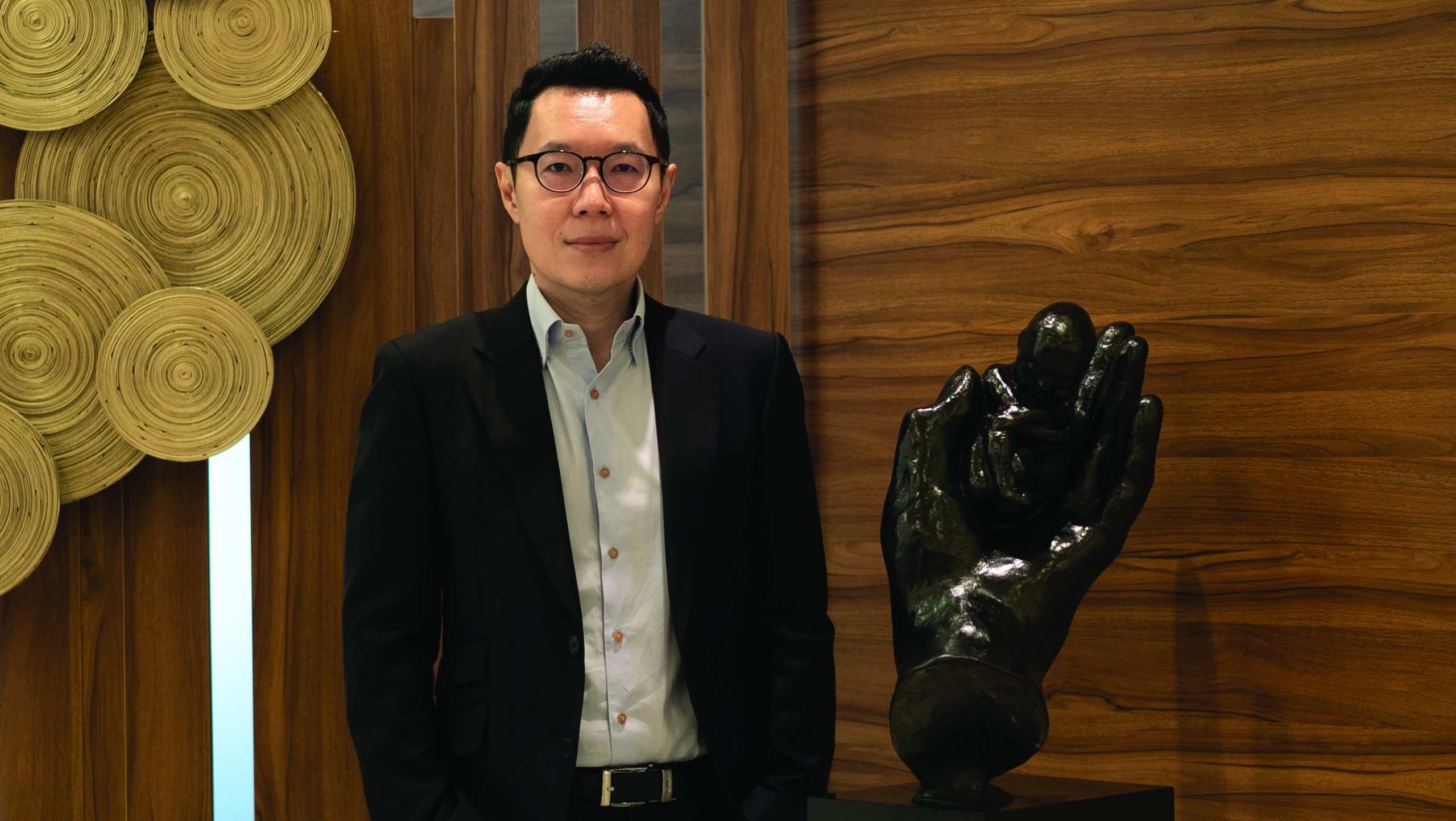 Moving onto the topic of sleep and stress. Do you find yourself getting adequate rest? And how do you manage stress?
Moving onto the topic of sleep and stress. Do you find yourself getting adequate rest? And how do you manage stress?
NC: Most of the time, I do get adequate sleep. There will be times when there is a lot of work to be done and I need to work late; there are also times when I need to make teleconference calls with colleagues in the US which requires me to stay up late. Despite these, I usually get enough rest.
The fact is: I have been trained to be able to sleep whenever I want. This came from my days working as a doctor in the hospitals. This was essential as I was on call almost every week during the nights and I still need to function during my normal working hours in the day time. This is what most doctors are trained to do. This is also why I can function with around 4-6 hours of sleep or less. But for the average person, I do think adequate rest is necessary to function well, although this may differ from person to person.
In terms of stress management, I do not feel stressed as I have gotten used to my work environment. I think stress occurs when we are not familiar with our environment, or when we are feeling under threat or uncomfortable with a new situation. Our body then produces a lot of adrenaline and cortisol, and pumps glucose into our blood in a fight or flight response. This is a physiological reaction that goes all the way back from the days when humans dwelled in caves and were hunter-gatherers.
But modern life is different. We no longer need to fight the physical threats that existed then, even though we still retain the same physiological reaction. In order to distract ourselves from these stressful situations, people often resort to means such as smoking, eating and drinking. I think we need to adapt ourselves in managing stress. For me, the key to stress management is to be conscious of the stress you are facing and then managing this stress properly, without letting stress take control of you subconsciously.
Stress management is also about your mental state. When you are encumbered with a lot of things to do, especially in a new environment, pace yourself. Go about your work in a way that you would not feel stressed. Prioritize, systemize and strategize on how to perform your tasks.
Finally, what advice do you have for the busy individual who wants to maintain a healthy lifestyle?
NC: Good health and wellness is a balance between three aspects: mental, emotional and physical.
In terms of the mental aspect, it involves having a vision. Much like the vision of a company, you need to have a vision for yourself – what you want to do and where you want to be. This can be in terms of having a healthy lifestyle or being around for your kids as they grow older. In life, we often get a lot of distractions and disappointments that detract us from what we want to do. Our vision acts as a compass to keep us on the path to where we want to be.
I would like to add that the current pandemic has brought about a lot of mental health issues (especially depression) due to the uncertainty surrounding people’s health and job security. It has also resulted in other related health issues such as binge eating and lesser exercise. We need to be conscious that we are fighting stress and stay focused on our vision to stay healthy during this difficult period – sticking to our regime and diet. I raise the example of Mr Lee Kuan Yew, our nation’s founding father. Mr Lee famously always stuck to his exercise regime no matter where he was. Even when he travelled overseas, he stuck to his exercise regime no matter what time he arrived. We ought to have the same level of commitment to our vision.
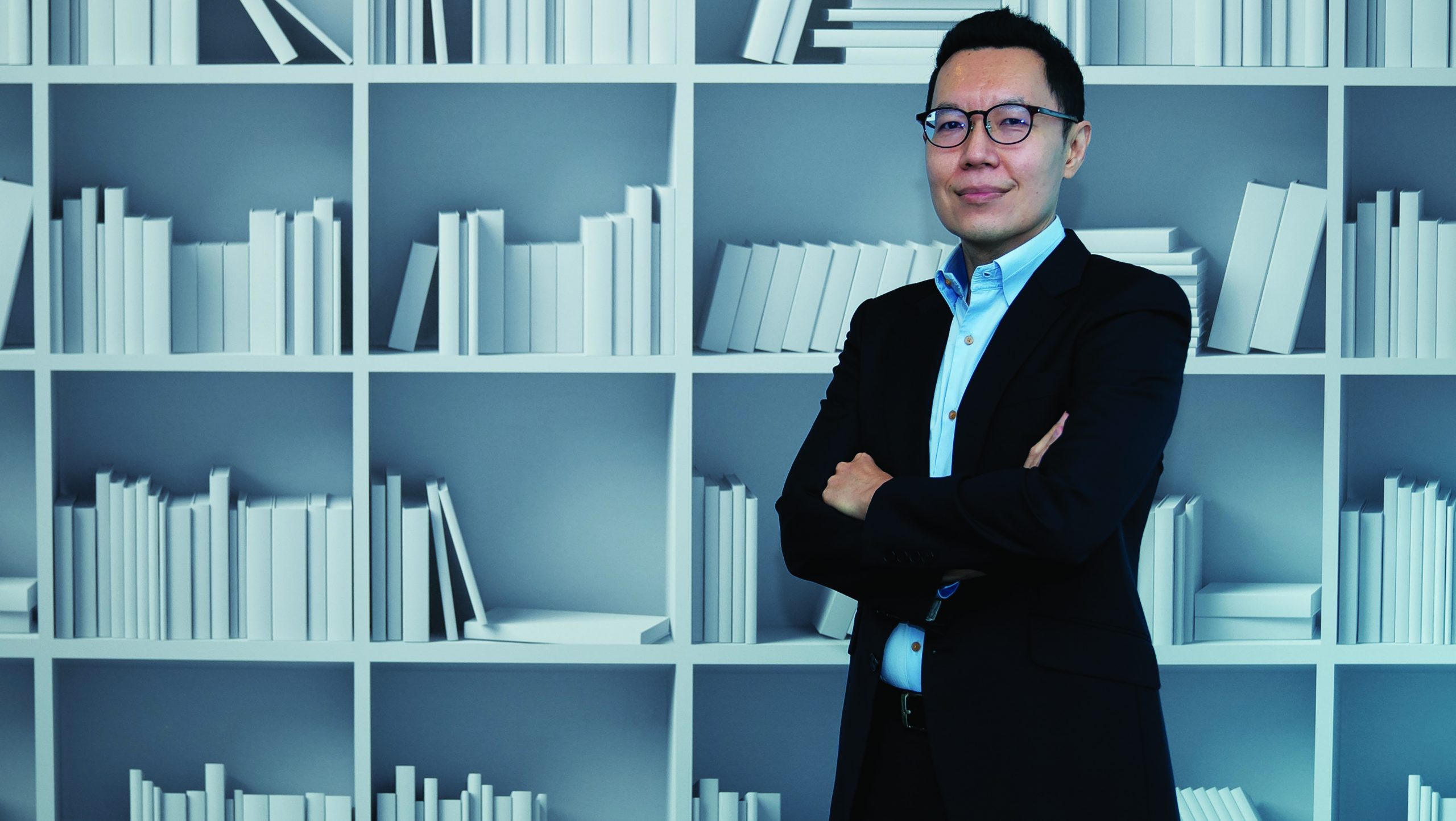 With regards to emotions, it is about being stable emotionally and being positive. Cast aside any negative vibes you may harbour and try to spread positivity to the people around you. Speak affirmatively, sing praises and encourage; try not to give derogatory feedback and dishearten people. Be helpful. During my days as a doctor, I found it very fulfilling when I helped to bring good health to people who were suffering from various ailments. While I am no longer actively practising medicine, I have tried to continue helping others by doing voluntary work, especially during the Circuit Breaker period. Through voluntary work, I discovered that there are a lot of elderly or neglected folks who really need our help. I try to get my family, especially my kids, to be involved in voluntary work as well so that they can see first-hand the less fortunate people around us, and understand why we should not take everything for granted.
With regards to emotions, it is about being stable emotionally and being positive. Cast aside any negative vibes you may harbour and try to spread positivity to the people around you. Speak affirmatively, sing praises and encourage; try not to give derogatory feedback and dishearten people. Be helpful. During my days as a doctor, I found it very fulfilling when I helped to bring good health to people who were suffering from various ailments. While I am no longer actively practising medicine, I have tried to continue helping others by doing voluntary work, especially during the Circuit Breaker period. Through voluntary work, I discovered that there are a lot of elderly or neglected folks who really need our help. I try to get my family, especially my kids, to be involved in voluntary work as well so that they can see first-hand the less fortunate people around us, and understand why we should not take everything for granted.
The mental and emotional components are interlinked. Often when a person feel stressed, he/she may lose control of his/her emotions and become angry. He/she may then say or do things that are out of character. Emotions are also linked to the ego. People with big egos may find it hard to accept when they are being corrected and lose control of their emotions. An emotionally stable person will more likely have his ego and stress in check.
Finally, the physical portion alludes to the things that we had talked about earlier: diet and exercise.




